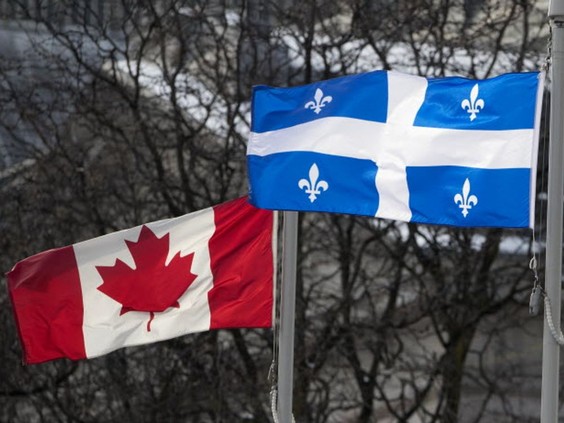For the first time in a generation, a separatist option is not among the top three most popular political parties in Quebec
TOP STORY
For the first time in a generation, a separatist option is not among the top three most popular political parties in Quebec. While separatism will probably never be fully purged from the Quebec political landscape, it has reached one of its lowest ebbs since the Quiet Revolution of the 1960s.
A recent survey by the Angus Reid Institute found that the three top-polling political options in Quebec were all parties that are officially agnostic on separation.
The governing Coalition Avenir Québec — a party founded just 11 years ago — continues to enjoy a clear plurality of support with 35 per cent of Quebec voters. The CAQ is openly nationalist while remaining neutral on secession, and has become a welcome home for hordes of former separatist politicians.
In second place is another newly founded political party, the Parti Conservateur du Québec, which was formed in 2009. Quebec conservatives have seen their support surge to 19 per cent in recent months, in part due to pushback on onerous COVID-19 restrictions. The party is also openly anti-sovereigntist and has long branded itself as “avowedly federalist.”
In third place is the Quebec Liberal Party, whose former leader, Jean Charest, is currently running for the federal Conservative leadership by touting himself as a warrior for federalism.
Quebecers are similarly lukewarm about an independent Quebec when asked directly by pollsters. In a December Research Co. poll, just 30 per cent of Quebecers agreed with the sentiment “my province would be better off as its own country.”
Even Quebecers who vote for the Bloc Québécois — the federal political party explicitly formed in 1993 to push for an independent Quebec — aren’t all that excited about sovereignty anymore. Last month, a wide-ranging survey of Canadians by U.K. pollster Michael Ashcroft found that Bloc voters were neatly divided on the notion of actually pulling the trigger on Quebec secession.
If fewer Quebecers are dreaming about independence these days, it does help that things are generally going their way.
The prime minister — while not universally loved in Quebec — is a Montrealer. And the provincial CAQ government has been relatively free to pursue statist legislation without any meaningful objection from Ottawa.
This is particularly true of Bill 21, which bans religious head coverings for civil servants, and Bill 96, which authorizes unprecedented enforcement of the speaking of French within Quebec businesses. While the two laws have received widespread condemnation in English Canada, they haven’t been subjected to any legal challenge from federal authorities.
The disappearance of separatism from the Quebec political scene may also be due in part to the fact that the issue’s historical standard-bearer — the Parti Québécois — has utterly alienated voters in recent years.
It was only eight years ago that a PQ leader, Pauline Marois, formed government. But she was turfed out in a decisive 2014 defeat from which the party has never fully recovered. The PQ won just 10 seats in 2018, and in what’s being called a pretty clear sign of party dysfunction, nearly half of those aren’t bothering to stand for re-election in the October provincial election.
The Parti Québécois isn’t even Quebec’s most popular separatist party anymore. That title belongs to the far-left Québec solidaire, whose platform effectively advocates for Quebec to become an independent nation founded on principles of radical collective environmentalism.
Meanwhile, as Quebec experiences a unique period of feeling comfortable within Confederation, the exact opposite is happening in Alberta. When Research Co. pollsters asked Albertans in December if they’d be better off as an independent country, 38 per cent answered in the affirmative.
The ongoing race to succeed Jason Kenney as Alberta premier is currently being led by former Wildrose leader Danielle Smith, who would easily stand as the most separatist-minded premier in the province’s history.
Smith has championed the Alberta Sovereignty Act, a proposal for the province to unilaterally ignore any federal law it doesn’t like, and to seize the levers of federal tax collection to deny Ottawa billions in federal transfers.



























